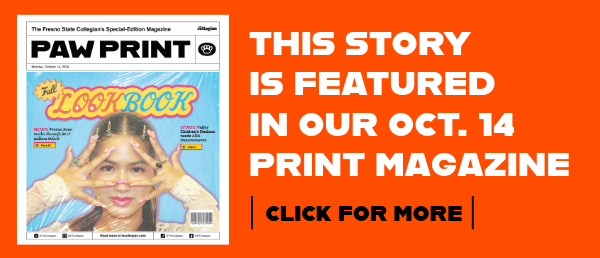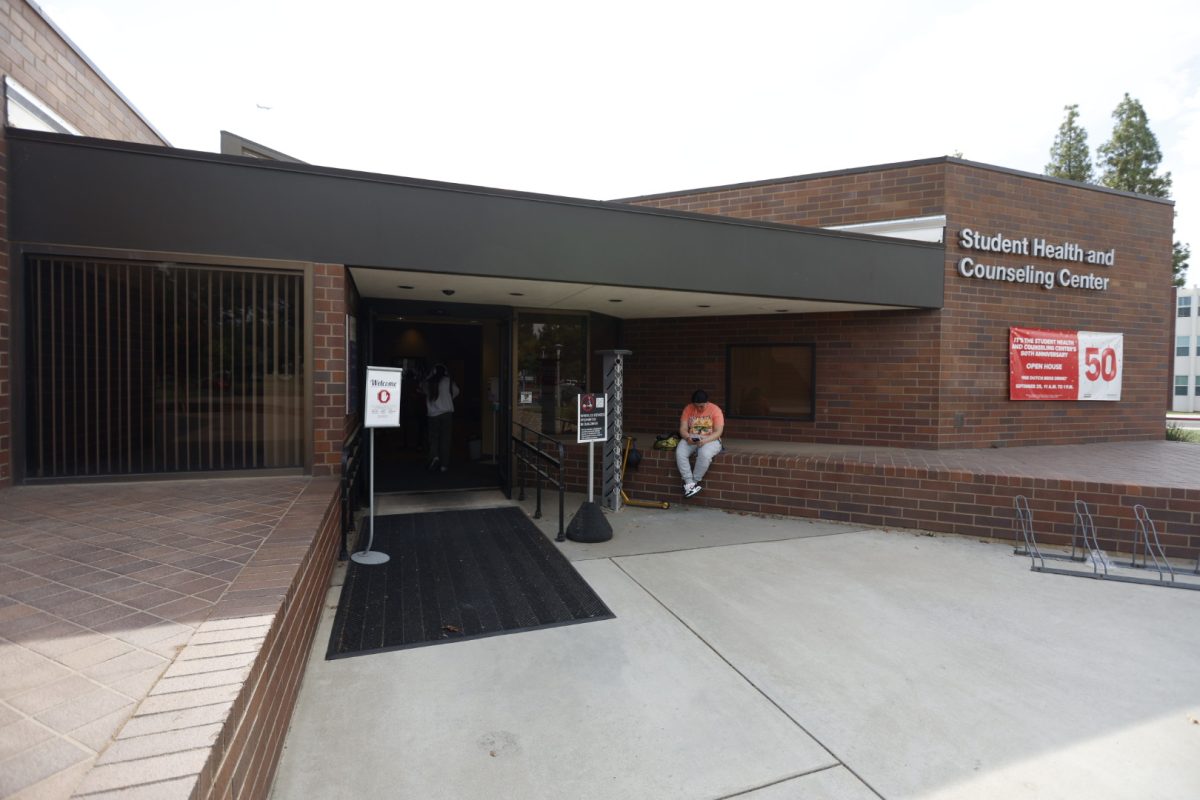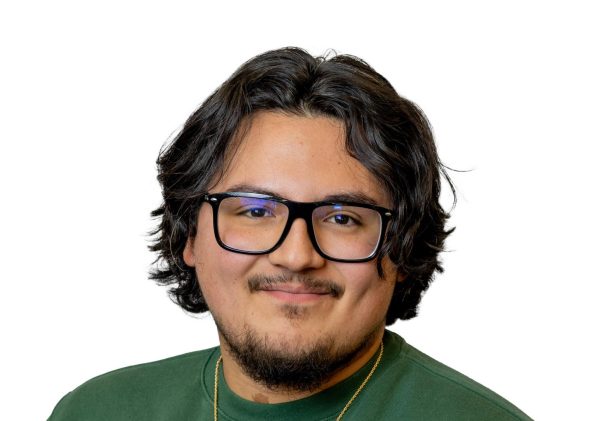Half a century ago in the fall semester of 1974, Fresno State opened a building that would go on to help and serve thousands of students throughout the years.
The Student Health and Counseling Center (SHCC) celebrated its 50th anniversary on Sept. 25. It hosted an open house with 403 students in attendance. Out of those people, 54% of them had never visited the SHCC before according to Janell Morillo, the associate vice president for Student Health Counseling and Wellness.
These attendance numbers drastically differ from what they were 50 years ago.
Before the SHCC, there was a building simply referred to as the Health Center. This Health Center lacked adequate capacities and a psychology department, both of which students needed at the time.
The new SHCC building cost around $1.5 million to build in 1974, which equates to around $9.5 million in today’s currency. It was also bigger, sitting at 25,000 square feet, compared to the old Health Center’s 5,257 square feet.
Another massive difference was the amount of students it could care for. The old Health Center only supported around 5,000 students while the SHCC supports about 20,000.
Additionally, the SHCC made Fresno State the first college in the California State University (CSU) system to have a clinical psychologist on staff. According to an Oct 12, 1973 article by the Fresno Bee, Rick Sarkisian was the first clinical psychologist hired at the SHCC. He was completing his doctorate in psychology at the University of California, Berkeley at the time. He currently runs his own rehabilitation services practice in Fresno.
With all these upgrades, the SHCC was equipped to handle a plethora of medical issues and events for decades to come.
One of the major events that put the SHCC to the test in the 1980s was the HIV/AIDS crisis.
During this time the SHCC staff were heavy advocates for contraceptive use. This was one of the ways to lower the chances of contracting the disease, but many people were not purchasing them.
Eventually, vending machines were placed in bathrooms. This was to ensure that those who were embarrassed to buy them had a safe space to do so.
Currently, the SHCC offers boxes in 11 locations around campus including the North Gym, the Resnick Student Union (RSU), the Kennel Bookstore and the Student Rec Center. These boxes have contraceptives for free. They come in small packets and have options for both external and internal condoms.
For those who want a more anonymous option, it also offers KISS kits. This stands for Keeping It Sexually Safe. Students can order condoms, dental dams and lubricant all packaged in a discreet bag that is available for pickup at the SHCC.
Abortion was another major medical topic that the center dealt with. In an Oct. 14, 1980 article by Lorri Olsen of The Collegian, the SHCC reported around 55% of women who found out they were pregnant at the center claimed that they would want an abortion in 1979.
Postcoital contraceptives were available to students despite a pro-life presence on campus that was mentioned in an Oct. 7, 1980, letter to the editor to The Collegian. The SHCC had a neutral stance on the distribution of postcoital contraceptives. They neither pushed students to take them nor did they suggest following through with their pregnancies. They only informed students about what the pill does and that it was available.
Currently, all CSUs are required to have abortion medication, according to a senate bill passed in 2019 that took effect at the beginning of 2023.
Plan B is available at the SHCC pharmacy and the new Wellness Vending Machine located in the Resnick Student Union (RSU).
This vending machine has a variety of products for free or reduced cost. This includes Plan B, first aid kits, Narcan, pregnancy tests, fentanyl strips and much more.
Janell Morillo urges students to check out the vending machine.
“The purpose of the vending machine was to create greater access for students,” Morillo said. “If you’re not able to come over to the health center, you can get it right there in the RSU.”
On the first day of the launch, a total of 42 items were dispensed. There are no plans at the moment to open up more, but it is possible in the future.
“I could see down the road that certainly as we are able to acquire funding that maybe placing one at the dorms or on the other side of campus would be ideal,” Morillo said.
The vending machine also contains COVID-19 tests, another major health issue that the SHCC has been through.
The COVID-19 pandemic shut down many places, yet the SHCC remained open the entire time. Telehealth became a popular option following the pandemic.
While the SHCC did not give out any COVID-19 vaccines, there were still efforts to help those who wanted them.
“We were able to work with the campus police department and partner with UCSF to offer a few COVID vaccine clinics,” Morillo said.
Another recent step in medical care has been gender-affirming care. While it is a controversial issue in many states and schools, Fresno State offers hormone replacement therapy.
With 50 years of tackling all these issues, the building itself has also received its fair share of upgrades. In the last eight years, the building has been remodeled and improved.
These upgrades were installed in phases, Morillo said. The first phase was the remodeling of the lobby and pharmacy. The second and third phases were inputting new furniture and decor in the counseling rooms, waiting rooms and medical offices. The fourth phase was the revamped wellness room.
The wellness room is where the Peer Ambassadors of Wellness (PAW) work. They are a group of volunteer students who promote the services offered by SHCC and organize outreach events like Wellness Wednesdays and Wellness Retreats.
Phase five upgraded the X-ray rooms, the labs and the examination rooms. The examination room saw the addition of brand new state-of-the-art procedure light along with more accessibility.
“We made it ADA compliant,” Morillo said. “It is also considered a procedure room. Let’s say there’s a laceration on someone’s head, you’d be able to see it much better to perform the procedure.”
The last few phases oversaw replacing the ceiling tiles, landscaping and roofs, as well as a move away from flyers and brochures. Instead, the SHCC has opted for digital signage to better cater to the technological age.
As the SHCC continues to modernize, more controversial or major changes in medicine will occur. Looking back at its history, the community can see that the center has always adapted and found the best way to provide for the students.





